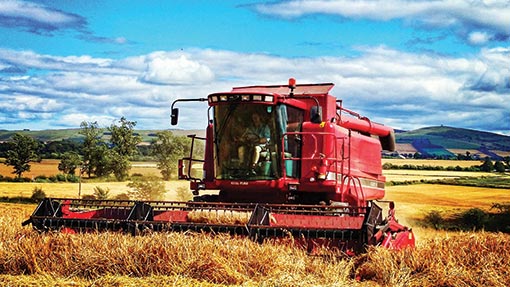Low grain prices mean budgets may need reviewing

Growers need to review budgets and cashflow in the light of far lower prices and generally better yields than expected, say advisers.
Higher wheat and barley yields should help make up some of the cashflow that will be lost through low grain prices, said Andrew Fundell at Brown & Co. However, there could be significant cashflow problems for some, which may not show through until May or June.
Many arable budgets were based on a feed wheat price of £150/t and a yield of 8t/ha. While yield reports are frequently coming in a couple of tonnes higher than this, fungicide costs have been high. A drop in the harvest price to between £105/t and £116/t ex-farm will leave many shorter of cash than expected.
Budgets needed reviewing and managing – banks were being reasonably flexible with requests for extra funding, said Mr Fundell.
Farmers are thought to be using more trade credit than in the past. However, deferred payment still had to be made and the timing and impact of this must be considered, he said.
European wheat futures hit a four-year low this week. Better than expected yields have led to speculation that the UK wheat crop could be as high as 17m tonnes but the HGCA cautioned that it is too early to put a figure on the crop.
“Because of its milling quality problems, France has more feed wheat than expected and is selling it at up to £10/t below our prices into Spain, Portugal and the Benelux countries, all of which are markets which we need to some extent and which we normally supply,” said Gleadell Agriculture managing director David Sheppard.
Millers have got used to being able to bring in mainly German milling wheat over the past couple of years, but with the French quality problems and German wheat costing more than UK 13% protein milling wheat, it may not be so readily available this season.
“The bulk of UK wheat is still in the field and while quality to date is good, barring some lower protein levels, we have yet to see enough to say that UK wheat is all of good quality,” said Mr Sheppard.
“Going on the Grade 1 and 2 milling wheat areas, there’s not a massive surplus and millers will need to retain most of it [breadmaking quality] in the UK, but we are already getting good interest in UKP-type export wheat, both within the EU and to North Africa.”
Fengrain managing director Rob Munro said that it was the biggest wheat crop seen for some time – the one bright spot was yields but making any feed wheat sales was very difficult. Exporters did not want to put grain into silos without having made sales and the general storage infrastructure could not cope with the size of the crop so pressure would increase.
“Consumers have got reasonable cover and are probably not in a position to absorb the grain which farmers need to offer,” he said.
